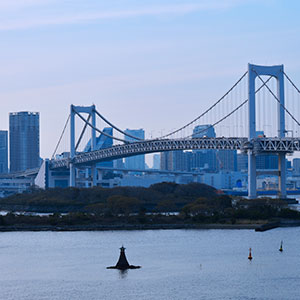Among the reforms to the regulatory inspection process recently announced by Japan’s Securities and Exchange Surveillance Commission (SESC) is an emphasis on “more interactive dialogue” with management. In practical terms, this “interactive dialogue” is likely to mean that SESC investigators will focus their inspections on interviews with key managers.
While some may heave a sigh of relief that the regulators have abandoned the scorched-earth techniques employed by the SESC in the past—as part of which investigators turned organisations upside down as they went over every piece of paper looking for regulatory breaches, however insignificant—the new approach is not without risk for an organisation. In essence, the results of the inspection may now rest on the shoulders of management, and whether its members are given a passing grade in their interviews with SESC inspectors.
With a regular inspection programme that calls for the inspection of around 200 business entities, such as securities and FX broker-dealers, banks registered as broker-dealers for certain types of securities, discretionary investment managers and investment advisors regulated under the Financial Instruments and Exchange Act of Japan (FIEA) during the current business year, together with the demands on resources that the current global financial turmoil has imposed, it is not surprising that the SESC is seeking a more efficient and effective inspection regime.
Thus, it is likely that this reform was instituted to address purely internal considerations, rather than as a response to frequent lobbying from the international business community. Indeed, it has been rumoured for some time that former prosecutors are being recruited to fill positions on the SESC’s inspection team to meet the increased demand for personnel.
Although most Japanese domestic firms may not consider the SESC inspection to be an adversarial process, as might foreign firms in their home country, these investigations should be treated with care. A well-considered plan, accompanied by employee training, is necessary to make sure that the firm provides an accurate and consistent response to investigators. Even the most diligent and dedicated manager is likely to have difficulty responding articulately and in detail to questions posed by an investigator trained in the day-to-day workings of firms.
Now is the time for organisation-wide preparations for the make-or-break interviews.
Dialogue with whom?
Who, among the members of management, the SESC seeks to interview will depend on the size of the firm and the nature of its business.
But it would be prudent to assume that the Board of Directors and members of senior management oversight committees will be targeted, as also managers of key departments that typically are the source of regulatory problems or are charged with overseeing such departments, including the Marketing, Trading, Fund Accounting, Settlements and Compliance departments.
Dialogue about what?
The SESC publishes a list of Areas of Inspection Focus that deviates little from the areas of traditional focus of Japanese regulatory inspections. The FSA inspection manual, published for each type of regulated entity, covers the familiar principles as well as the sensitive question of risk management.
Independence of the regulated entity and local management
Although the rules regulating firewalls between affiliates conducting different categories of regulated business have been relaxed somewhat since the first implementation of the FIEA’s reforms, the regulatory approach in Japan takes a strict view of corporate separateness and expects a real, functioning local management and local performance of business contracted by the regulated entity with Japan-based customers. Regulators will not view favourably (i) the presence of personnel seconded by an overseas parent firm on key oversight committees, or (ii) the outsourcing of functions.
Adherence to Japanese rules and regulations
An inspector is unlikely to be impressed if told that local processes conform to global standards, if they do not satisfy Japanese standards. Theoretically, as long as local policies and procedures conform to Japanese standards, compliance with those recognised globally is not an issue. However, because in practice Japanese and international standards may conflict, one must ensure that the Japanese entity’s policies and procedures are in compliance with Japanese standards.
Customer protection
The focus here is on: (i) the requirement that clients be made whole for losses caused by operating errors; (ii) the absence of conflicts of interest (for example, cross-trades) between the regulated entity or its affiliates on the one hand and its clients on the other; (iii) confidentiality protection for client information, including the protection required by Japan’s Personal Information Protection Act and its guidelines; (iv) adequate management and custody of client assets; (v) accurate and complete disclosure as required by the FIEA; and (vi) the performance of required suitability checks for new customers.
Sound trading practices
The inspectors take seriously their responsibility to ensure market integrity, and will look for breaches of the FIEA, such as trading on non-public information and market manipulation.
A “compliance mindset”
A regulated entity needs to demonstrate a “thorough awareness” (shuuchi tettei) of required regulatory standards through measures such as the implementation and dissemination of an internal compliance manual and required rules and regulations (such as those published by the Japan Securities Dealers Association, the Investment Trust Association, or the Japan Securities Investment Advisors Association). Firms with established compliance programmes should integrate Japanese regulatory requirements into any existing compliance manuals and related training.
Absence of “antisocial forces”
Regulators remain focused on sound know-your-client and money-laundering checks.
Management awareness and “verification”
Regulators will look for a demonstrated awareness of risks and problems facing the firm in the form of errors, complaints and, in the worst case, breaches of the law. They will also check that the firm has developed adequate prophylactic, monitoring and remedial measures for prevention, detection and response.
Additionally, the SESC has placed an emphasis on systemic risk management systems to address global operational and financial soundness.
Accordingly, investigators will focus on issues such as the integrity of global trading, settlement and customer database systems, as well as awareness of credit, liquidity and market risk.
Now is the time for regulated entities to prepare and practice responses to likely questions that address the principles above, particularly:
Organization and management accountability
Structure of compliance and internal controls
Awareness of Japanese regulations and policies
Operating errors and redress
Marketing and customer suitability
Data confidentiality
Integrity of IT systems
Robyn Nadler is not a Japanese lawyer and this article is not intended to be legal advice.





